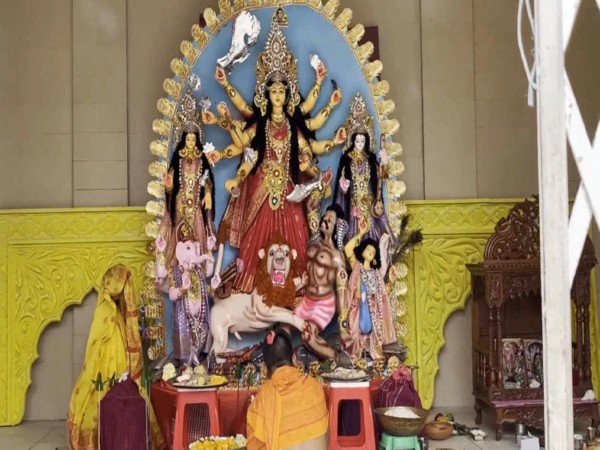"No action taken by Pak govt to curb air pollution": Karachi resident
Feb 23, 2025

Karachi [Pakistan] February 23 : Pakistan is grappling with a severe air pollution crisis, with major cities like Karachi, Lahore, and Islamabad choked by toxic smog. The situation is dire, with millions facing serious health risks due to poor air quality.
Despite the worsening conditions, the government has been criticized for its inaction and empty promises.
Karachi resident Qazi Hala Rehman expressed his frustration, saying, "This is not a new problem; it has existed for a long time. As factories and pollution have increased, so have diseases. We have seen outbreaks like COVID-19 and dengue, which have taken many lives. The government claims to address these issues, but no proper sanitation system is in place."
The city's lack of basic infrastructure, including proper sanitation systems, has exacerbated the problem.
Rehman pointed out, "Open drains and overflowing sewage can still be seen on the roads, leading to an increase in mosquitoes and diseases like malaria." This negligence has caused a rise in waterborne and vector-borne diseases, further straining the city's failing healthcare system.
Meanwhile, Karachi has now surpassed Lahore as Pakistan's most polluted city.
Rehman noted that vehicle emissions are a major contributor to this crisis: "The increasing number of vehicles has worsened the problem, yet no action is being taken to control emissions. The government talks about issuing fitness certificates for vehicles to ensure they do not emit smoke, but these are just empty promises. Nothing is being implemented."
Adding to the chaos is the unchecked tanker mafia, which operates without proper licenses or fitness checks, leading to fatal accidents. Rehman criticized the authorities for ignoring this growing problem: "This is the government's responsibility, but it only makes statements without taking any action," he added.
Hospitals are now overcrowded with patients suffering from respiratory issues, but the government refuses to acknowledge the crisis.
Rehman lamented, "Many laws have been passed, but none have been enforced. It is disappointing to see how the government and health ministries have failed. They claim diseases are decreasing and that hospitals have enough medicine, but the reality is the opposite--illnesses are increasing, and hospitals are running out of medicines."
The crisis is not limited to Karachi alone. Other cities like Larkana are also struggling with poor healthcare and pollution. "Bilawal Bhutto Zardari promised to turn Larkana into Paris, but nothing has been done. There are no proper hospitals, no medicines, and people have to wait in long lines for treatment," Rehman added.
Despite repeated promises, Pakistan's government has failed to take meaningful action. With rising pollution levels and diseases spreading, citizens are left to suffer in an increasingly unlivable environment.
Rehman summed up the frustration of the people, "The government is failing to provide relief. Despite repeated promises, nothing has changed. The citizens are left to suffer, and no action is being taken to improve their living conditions."

















